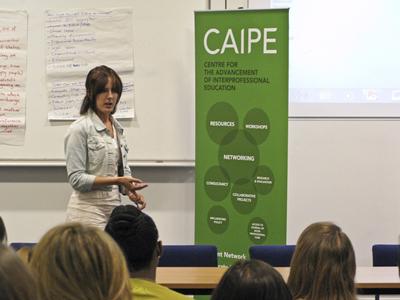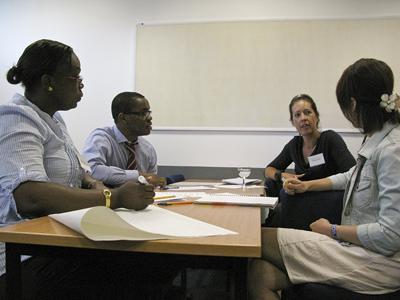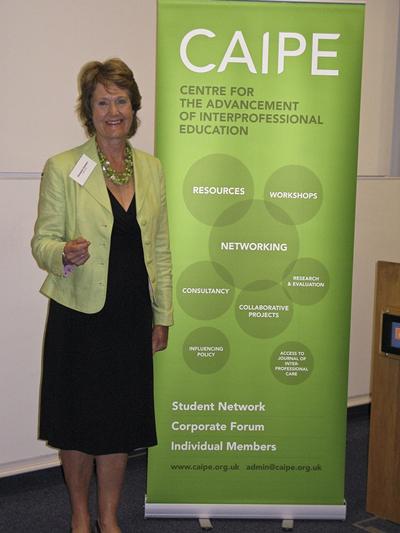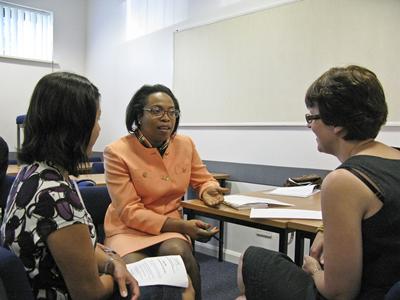CAIPE National Student Conference
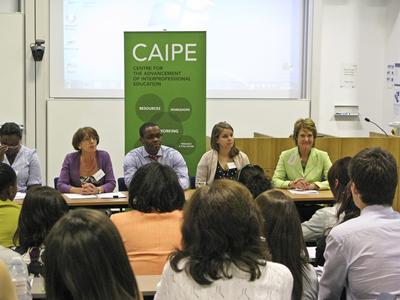
The Faculty of Health Sciences at the University of Southampton was proud to host the first national student conference aimed at promoting awareness of interprofessional education (IPE) and collaborative practice.
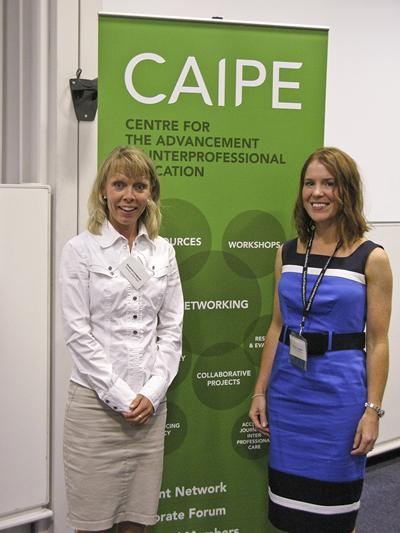
About 40 health and social care students from nine universities across the UK descended on the University for the launch of the pioneering conference supported by the Centre for the Advancements of Interprofessional Education (CAIPE).
Entitled Championing Interprofessional Education and Collaborative Practice, the event offered students from a variety of different professions the opportunity to find out more about how IPE and collaborative practice can benefit patient care.
Chair of CAIPE Elizabeth Howkins opened the conference at Southampton’s Health Sciences’ Nightingale Building. She said: “The future of IPE and CAIPE depends on encouraging the next generation to take on the mantle of inspiring the values of interprofessional education.
“You students are the next generation, so I hope you enjoy the day and start working on your new role as champions of IPE.”
Delegates then heard keynote presentations from national and international leading experts in IPE.
Dr Alan Borthwick, Programme Leader for Podiatry at the University of Southampton, opened the speeches by explaining how students and health care professionals can learn to work together for better health.
“There is a huge demanding need for IPE and collaborative practice. This isn’t happening exclusively in the UK but is a global situation and across the world changes are being made to how we work,” he said.
Dr Edgar Meyer, Senior Lecturer and Director of BSc Management at the University of Southampton, then revealed some interesting insights into the science of teaching IPE; while general practitioner and CAIPE board member Dr Richard Gray examined how IPE can help improve patient safety.
Simon Messer, Director of Technology-enhanced Learning at the University of the West of England, gave an eye-opening talk about the possibilities of learning IPE through the creation of a virtual community, Greenbank, that students can access online.
Dr Sarah Hean, Associate Professor for the Centre for Well-being and Quality of Life, at the University of Bournemouth, provided an overview of useful IPE networks and resources.
Presentations also included talks by current students about their exciting and inspiring experiences of IPE.
Charles Iwegbu, from the University of East Anglia, gave an enthusiastic presentation on the benefits of IPE from a medical student’s perspective.
Clara Harris, from the University of Southampton, shared her fantastic experiences during an exchange programme with the Tokyo Metropolitan University, in Japan.
“IPE is a worldwide issue and we in the UK should be proud to be at the forefront of it,” she said.
“It was great to see interprofessional learning from its birth in Japan and to put my experiences into practice back here,” added Clara.
Amanda King, from the University of Nottingham, talked about an interprofessional teaching package that has been created by students in Nottingham; and Kelly Terrell, from the University of Edinburgh, looked at whether the skills required to play online games could be transferred to IPE learning.
Special group tasks gave delegates the chance to explore the issue of IPE and patient safety.
The groups looked at incidents where patients had been at risk and suggested ways that collaborative working could prevent it happening again.
Education Consultant and former chair of CAIPE Professor Marilyn Hammick closed the conference by warmly congratulating the delegates and speakers on their exceptional and insightful input.
Conference organisers Dr Deborah Craddock, from the University of Southampton, and Dr Susanne Lindqvist, from the University of East Anglia, were delighted with the success of the conference.
Deborah said: “We launched this conference because we wanted to build on the World Health Organisation’s statement that IPE is a necessary step in preparing a collaborative practice-ready workforce that is responsive to local health issues.
“We hope it has encouraged students to become motivated and engaged with IPE early on in their careers so that when they are qualified they can really build on this.
“This was an excellent opportunity for the delegates to interact with students from other universities across the UK and share their experiences, views and opinions.
“Today’s employers want people who can work in an interprofessional team. By attending this conference the students have shown their commitment and enthusiasm for collaborative practice in health and social care.”
The conference is just one of many CAIPE initiatives that show its commitment to promoting and developing IPE between professions to improve the care and quality of life for individuals, families and communities.
It is hoped that the national student conference will become a regular event based at different universities around the UK.
